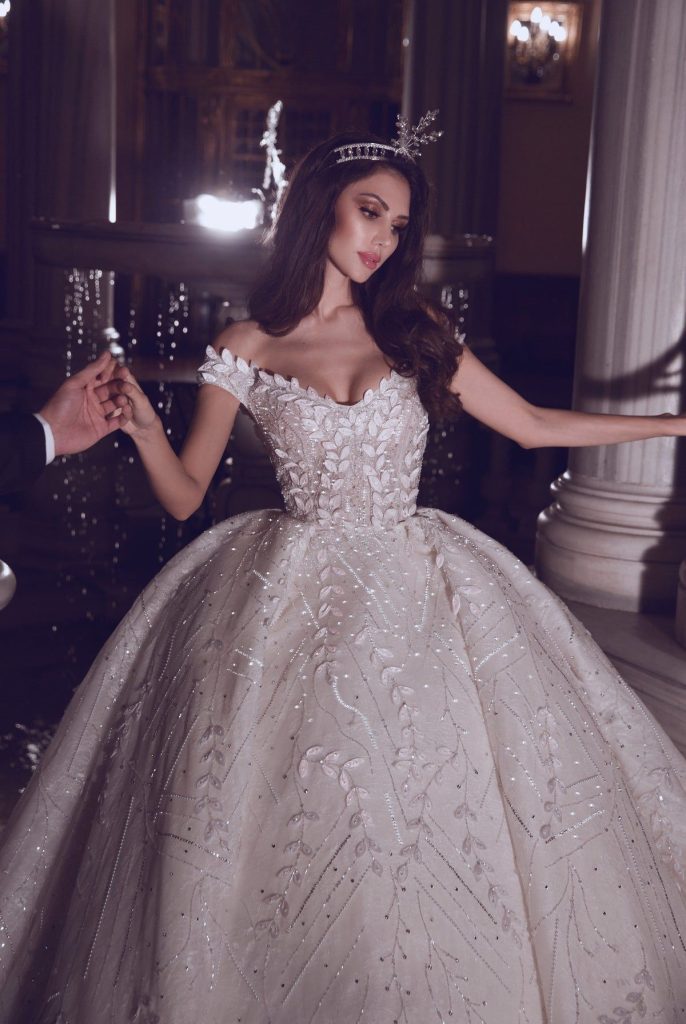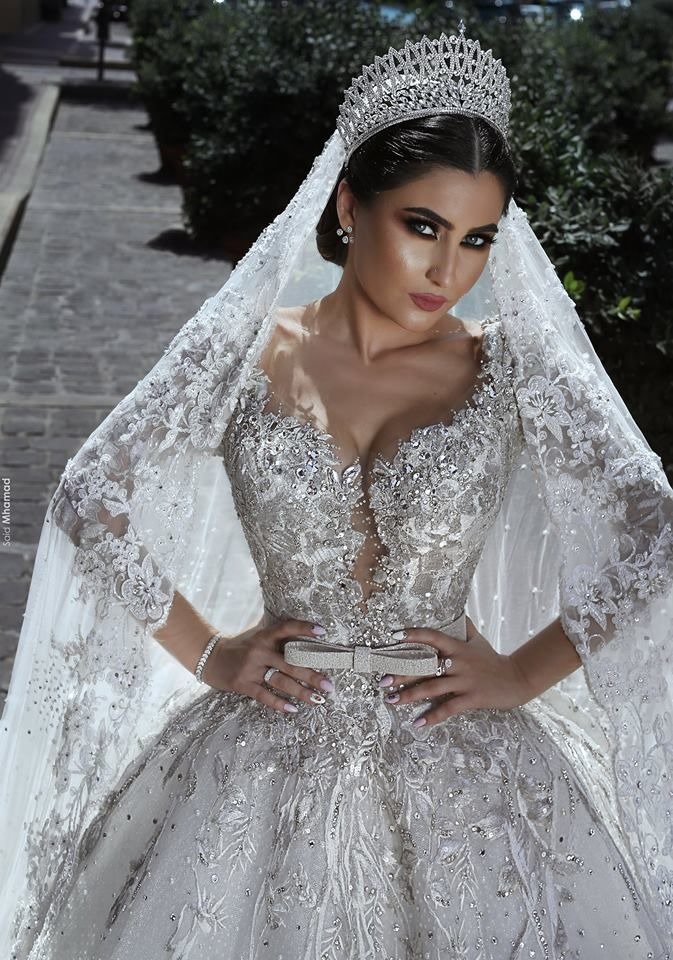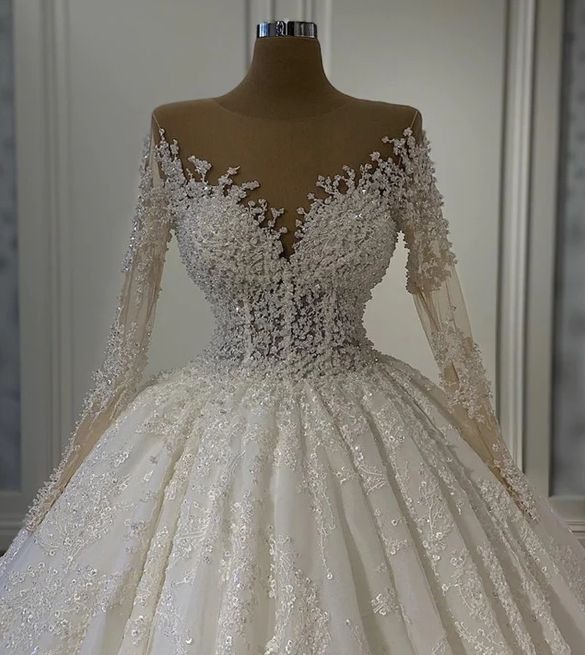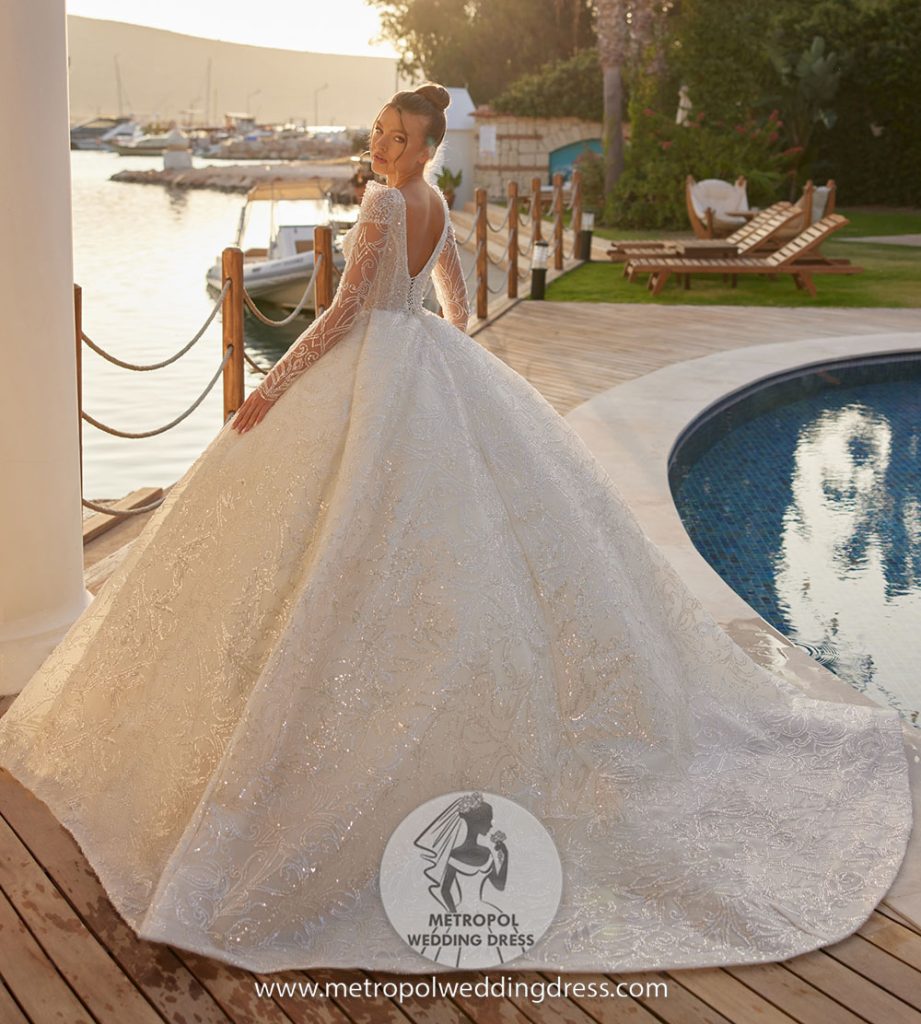
Sustainable Fashion Why Custom Made Dresses Are the Future To appreciate why custom-made dresses represent the future, we must first confront the dire state of the current fashion landscape. The fast fashion model, popularized by brands like Zara, H&M, and Shein, churns out billions of garments annually at breakneck speeds. According to a 2023 report from the Ellen MacArthur Foundation, the fashion industry produces over 100 billion items of clothing each year, with 92 million tons ending up in landfills. This waste contributes significantly to global pollution, as synthetic fabrics like polyester release microplastics into waterways during washing and decomposition.
Water usage is another staggering issue. Producing a single cotton T-shirt requires approximately 2,700 liters of water—enough to sustain one person for 900 days. For dresses, which often involve more fabric and intricate designs, the footprint is even larger. Dyeing processes alone account for 20% of global industrial water pollution, releasing toxic chemicals into rivers and oceans. The carbon emissions from fashion rival those of aviation and shipping combined, with the industry responsible for 10% of global CO2 output.
Labor ethics compound these environmental woes. Fast fashion thrives on cheap labor in developing countries, where workers endure unsafe conditions for minimal wages. The 2013 Rana Plaza collapse in Bangladesh, which killed over 1,100 garment workers, highlighted the human cost of our disposable clothing culture. As consumers demand change, sustainable fashion movements gain traction, emphasizing longevity, recyclability, and ethical sourcing.
The Rise of Customization in Fashion History
Customization isn’t new; it’s a return to roots. Before the Industrial Revolution, clothing was handmade by local tailors, fitted to the individual. The advent of ready-to-wear in the 19th century democratized fashion but at the cost of quality and fit. Today, technology revives personalization on a scalable level.
In the 20th century, haute couture houses like Chanel and Dior offered bespoke dresses to the elite, emphasizing craftsmanship. The 21st century democratizes this through digital tools. Brands like Stitch Fix and Sumissura use algorithms to suggest custom fits, while 3D body scanning apps allow precise measurements from home. This evolution aligns with sustainable fashion principles, as bespoke items discourage impulse buys.
Historical examples abound. During World War II, rationing led to “make do and mend” cultures, where dresses were altered and reused. Post-war, the New Look by Dior celebrated femininity through tailored silhouettes, but mass production soon overshadowed it. Now, amid climate crises, we’re circling back. The 2024 Paris Fashion Week featured sustainable custom lines from designers like Stella McCartney, using upcycled materials.
Why does this matter for the future? As global populations grow and resources dwindle, mass production becomes untenable. Custom-made dresses, produced on-demand, align with circular economy models—designing for reuse, repair, and recycling. The phrase “Sustainable Fashion Why Custom Made Dresses Are the Future” highlights how personalization fosters emotional attachment, extending garment lifespans.
Benefits of Custom-Made Dresses for Sustainability
Delving deeper, let’s examine the multifaceted benefits. First, waste reduction: In mass production, up to 15% of fabric is wasted during cutting. Custom dresses use patterns based on exact measurements, slashing this to near zero. Brands like Reformation and Eileen Fisher incorporate zero-waste designs, but customization takes it further by avoiding unsold inventory.
Resource conservation is key. Organic fabrics require less water and pesticides. For instance, hemp dresses use 50% less water than cotton and grow without chemicals. Custom orders allow selection of such materials, tailored to climate or lifestyle—breathable linens for summer, wool blends for winter.
Energy savings occur too. Local production reduces transportation emissions. Many custom dressmakers operate regionally, sourcing from nearby farms or mills. A 2025 study by the World Resources Institute projects that shifting 20% of global fashion to custom models could cut emissions by 15%.
Durability enhances sustainability. Custom dresses, made with high-quality stitches and reinforcements, last longer. Unlike fast fashion’s planned obsolescence, these garments withstand wear, reducing replacement frequency. Repairs are easier, as tailors can match original designs.
Inclusivity benefits marginalized groups. Standard sizes exclude many body types, leading to ill-fitting clothes that are discarded. Custom dresses ensure perfect fits for all shapes, promoting body positivity and reducing waste from returns—e-commerce returns alone generate 5 billion pounds of landfill waste yearly in the US.
Economically, while initial costs are higher, long-term savings accrue. A $200 custom dress might outlast five $50 fast fashion ones, equating to better value. As consumers prioritize quality over quantity, markets shift. The global custom clothing market, valued at $500 billion in 2024, is projected to reach $1 trillion by 2030, driven by sustainable demands.
Technological Innovations Driving Custom Fashion
Technology is the catalyst making custom-made dresses accessible and sustainable. 3D printing allows rapid prototyping of designs, using biodegradable filaments. Companies like Iris van Herpen pioneer 3D-printed dresses from recycled plastics, merging art and eco-friendliness.
AI and machine learning personalize recommendations. Apps like MTailor use smartphone cameras for measurements, accuracy rivaling professional tailors. Blockchain ensures supply chain transparency, verifying sustainable sourcing—consumers scan QR codes to trace fabric origins.
Virtual try-ons via augmented reality (AR) reduce physical samples. Gucci and Nike’s AR apps let users visualize custom dresses, minimizing returns. Robotics in sewing automate precision tasks, reducing human error and energy use.
Sustainable materials innovate too. Lab-grown leather from mycelium or pineapple leaves (Piñatex) offers cruelty-free alternatives. Algae-based dyes replace toxic chemicals, and recycled ocean plastics form durable fabrics.
In 2025, advancements like biofabrication—growing textiles from bacteria—promise zero-waste production. Custom dresses benefit most, as small batches suit experimental materials.
These technologies democratize access. Online platforms like Etsy or RedThread connect global artisans with consumers, fostering micro-economies. The future? AI-designed, robot-sewn, sustainably sourced dresses delivered in days.
Case Studies: Brands Leading the Charge
Real-world examples illustrate the potential. Take Atacac, a Swedish brand using 3D modeling for custom dresses. Their zero-waste patterns and on-demand production cut environmental impact by 30%. Customers design via an app, choosing sustainable fabrics like Tencel (from wood pulp).
Another is Ministry of Supply, blending tech with sustainability. Their custom dresses use performance fabrics that wick moisture and resist wrinkles, extending wear. A lifecycle analysis shows their garments last twice as long as averages.
Indie designers like those on Depop repurpose vintage fabrics into custom pieces, combating waste. Larger players like Patagonia offer repair services for custom orders, embodying circularity.
In Asia, brands like Shanghai Tang incorporate traditional silk-weaving into modern custom dresses, preserving crafts while using organic dyes. African designers on platforms like AfroFashion promote custom kente cloth dresses, supporting local economies.
These cases prove “Sustainable Fashion Why Custom Made Dresses Are the Future”: scalability meets ethics.
Consumer Behavior and Cultural Shifts
Why are consumers embracing this? Awareness campaigns like Fashion Revolution’s #WhoMadeMyClothes highlight issues, pushing for transparency. Social media amplifies: TikTok trends on upcycling dresses reach millions.
Generational shifts matter. Millennials and Gen Z, comprising 50% of consumers by 2025, prioritize sustainability—80% willing to pay more for eco-friendly items per Nielsen reports. Custom dresses appeal to their individualism, countering uniform fast fashion.
Cultural movements like slow fashion advocate mindful consumption. Books like “The Conscious Closet” by Elizabeth Cline inspire capsule wardrobes with custom staples.
Challenges exist: higher prices deter some, but financing options and rentals emerge. Platforms like Rent the Runway offer custom-fit rentals, extending access.
Globally, policies aid. EU’s 2024 Green Deal mandates sustainable practices, favoring custom models over mass production.
Challenges and Solutions in Adopting Custom Dresses
Despite promise, hurdles remain. Scalability: traditional tailoring is time-intensive. Solution? Automation—sewing robots handle repetition, artisans focus on creativity.
Supply chain issues: sustainable materials cost more. Collaborations with farmers and subsidies help. Education: consumers need awareness. Brands use blogs and influencers to explain benefits.
Accessibility: not everyone has tech for measurements. Pop-up shops and mobile apps bridge gaps.
Addressing these ensures custom dresses become mainstream.
The Economic Impact on the Fashion Industry
Shifting to custom could reshape economies. Job creation in skilled labor rises, as automation complements human touch. Developing countries benefit from fair trade custom exports.
Revenue models evolve: subscription services for custom wardrobes, like Armoire, generate steady income.
Investment surges: venture capital in sustainable tech hits $10 billion in 2024.
Future Trends in Sustainable Custom Fashion
Looking ahead, integration with wearables: smart dresses monitoring health, made custom for fit.
Metaverse fashion: virtual custom dresses translate to physical ones via NFTs.
Biodegradable innovations: dresses composting at end-of-life.
Global collaborations: cross-cultural designs promoting diversity.
By 2050, custom could dominate, with AI predicting needs preemptively.
Conclusion: Embracing the Custom Future
In summary, “Sustainable Fashion Why Custom Made Dresses Are the Future” because they address core issues of waste, ethics, and personalization. As we navigate climate change, choosing custom isn’t optional—it’s essential. Start small: support local tailors, opt for made-to-order. The future wardrobe is sustainable, unique, and yours.
When it comes to wedding dresses, brides across the globe seek elegance, uniqueness, and craftsmanship that make their special day unforgettable. The phrase “Elegant Handmade Bridal Gowns from Turkey – Shop Online Now” perfectly encapsulates the allure of Turkish wedding dresses, which have gained international acclaim for their intricate designs, luxurious fabrics, and cultural heritage. Turkey has become a hub for bridal fashion, blending traditional artistry with modern sophistication to create breathtaking gowns that cater to diverse tastes. Whether you’re searching for a Turkish wedding dress, a bride gown from Turkey, or a custom wedding dress from Turkey, the country’s bridal couture industry offers something extraordinary for every bride.
In this comprehensive guide, we’ll explore the world of Turkish bridal gowns, delving into their unique characteristics, the craftsmanship behind them, and why they are a top choice for brides worldwide. From Turkey bridal couture to wedding dresses from Turkey with overseas shipping, this article covers everything you need to know about choosing the perfect gown and how to shop online for a seamless experience, including wedding dress Turkey ship to USA.
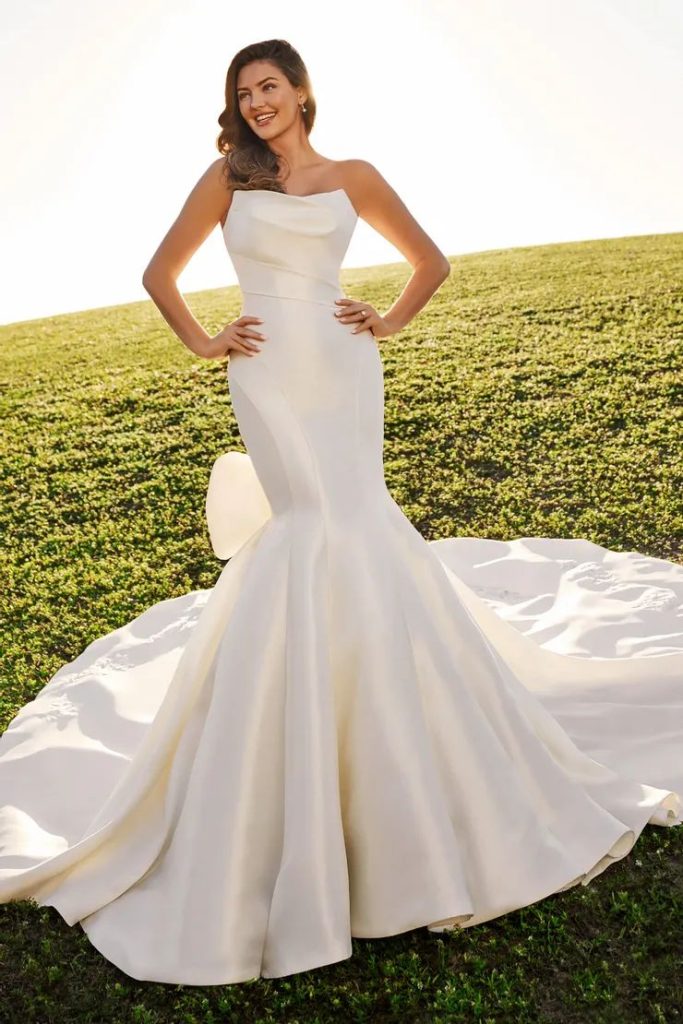
The Allure of Turkish Wedding Dresses
A Blend of Tradition and Modernity
Turkey’s rich cultural heritage, influenced by its Ottoman past and diverse regional traditions, is reflected in its Turkish wedding dresses. These gowns are more than just garments; they are works of art that tell a story of craftsmanship, elegance, and innovation. Designers in Turkey draw inspiration from historical patterns, such as intricate lacework and embroidery, while incorporating modern silhouettes and trends that appeal to today’s brides.
A Turkish bridal gown is often characterized by its attention to detail. From hand-stitched embellishments to luxurious fabrics like silk, satin, and tulle, these dresses exude sophistication. Whether you’re envisioning a classic ball gown, a sleek mermaid dress, or a bohemian-inspired creation, Turkey’s bridal industry has a design to match your vision.
Why Choose a Bride Gown from Turkey?
- Unmatched Craftsmanship: Turkish artisans are renowned for their meticulous attention to detail. Each made in Turkey wedding dress is crafted with precision, ensuring that every bead, sequin, and stitch is perfectly placed.
- Affordable Luxury: Compared to Western designers, Turkish wedding dresses offer high-end quality at more accessible price points, making them an attractive option for brides seeking value without compromising on elegance.
- Customization Options: Many Turkish designers specialize in custom wedding dresses from Turkey, allowing brides to personalize their gowns with unique details, such as custom embroidery, specific fabrics, or tailored fits.
- Global Appeal: With Turkey wedding gown overseas shipping, brides from the USA, Europe, and beyond can access these stunning creations without leaving their homes.
Exploring Turkish Bridal Couture
The Art of Handmade Bridal Gowns
The term Turkey bridal couture refers to the high-end, bespoke designs that have put Turkey on the map as a leading destination for wedding dresses. These gowns are often handmade, with artisans dedicating hours to creating intricate patterns and embellishments. From delicate lace appliqués to hand-sewn beadwork, every detail is crafted to perfection.
Turkish wedding dresses are known for their versatility. Whether you prefer a minimalist gown with clean lines or an opulent dress adorned with crystals and pearls, Turkish designers offer a wide range of styles. Popular design elements include:
- Intricate Embroidery: Inspired by Ottoman and Anatolian motifs, many gowns feature floral or geometric patterns that add a touch of cultural heritage.
- Luxurious Fabrics: Silk, satin, organza, and tulle are commonly used, giving each dress a rich, elegant texture.
- Unique Silhouettes: From flowing A-line dresses to dramatic ball gowns, Turkish designers cater to every bride’s dream style.
Customization: Crafting Your Dream Dress
One of the standout features of custom wedding dresses from Turkey is the ability to create a gown tailored to your exact specifications. Brides can work directly with designers to choose fabrics, colors, and embellishments, ensuring that their dress is a one-of-a-kind masterpiece. This level of personalization is particularly appealing to brides who want a gown that reflects their personality and style.
For example, a bride might opt for a Turkish bridal gown with hand-embroidered lace inspired by traditional Turkish patterns, combined with a modern, form-fitting silhouette. Others might choose a flowing, bohemian-style dress with soft, ethereal fabrics for a romantic look. The possibilities are endless, and Turkish designers are known for their ability to bring even the most complex visions to life.
Why Turkish Wedding Dresses Are Perfect for International Brides
Wedding Dress Turkey Ship to USA and Beyond
One of the biggest advantages of shopping for a Turkish wedding dress is the ease of international shipping. Many Turkish bridal boutiques and online stores offer Turkey wedding gown overseas shipping, making it simple for brides in the USA, Europe, and other regions to receive their dream dress. For brides searching for wedding dress Turkey ship to USA, the process is streamlined, with reliable shipping options and clear communication from sellers.
Online platforms specializing in Turkish bridal gowns provide detailed sizing guides, fabric swatches, and virtual consultations to ensure that brides get the perfect fit, even from thousands of miles away. Many retailers also offer expedited shipping options for brides who need their gowns on a tight timeline.
The Benefits of Shopping Online for Turkish Bridal Gowns
Shopping online for a bride gown from Turkey is not only convenient but also opens up a world of possibilities. Here’s why brides are turning to online stores for their Turkish wedding dresses:
- Wide Selection: Online stores showcase a vast array of designs, from classic to contemporary, allowing brides to explore countless options.
- Customization Services: Many online retailers offer custom wedding dress Turkey services, enabling brides to submit their measurements and preferences for a tailored gown.
- Competitive Pricing: By cutting out the middleman, online stores often offer better prices than traditional bridal boutiques.
- Customer Reviews: Online platforms provide reviews and testimonials from other brides, giving you confidence in your purchase.
To shop online, simply search for “Elegant Handmade Bridal Gowns from Turkey – Shop Online Now” to find reputable retailers with a strong track record of quality and customer satisfaction.
How to Choose the Perfect Turkish Wedding Dress
Consider Your Wedding Style
Your wedding dress should reflect the overall theme and vibe of your wedding. For a traditional ceremony, a Turkish bridal gown with intricate embroidery and luxurious fabrics might be the perfect choice. For a modern, minimalist wedding, opt for a sleek, form-fitting gown with subtle embellishments. Beach or destination weddings call for lightweight, flowing dresses that capture the bohemian spirit.
Understand Your Body Type
Turkish designers excel at creating gowns that flatter every body type. Whether you’re petite, curvy, or tall, a made in Turkey wedding dress can be tailored to accentuate your best features. Popular silhouettes include:
- A-Line: Universally flattering, this style cinches at the waist and flares out, creating a balanced silhouette.
- Mermaid: Perfect for brides who want to showcase their curves, this style hugs the body and flares at the knees.
- Ball Gown: Ideal for a fairy-tale wedding, this dramatic style features a fitted bodice and a voluminous skirt.
- Sheath: A sleek, straight silhouette that’s perfect for minimalist or modern weddings.
Work with a Designer for Customization
If you have a specific vision in mind, consider opting for a custom wedding dress from Turkey. Many designers offer virtual consultations, where you can discuss your preferences, share inspiration photos, and provide your measurements. This collaborative process ensures that your gown is uniquely yours, down to the smallest detail.
The Cultural Significance of Turkish Wedding Dresses
A Reflection of Heritage
Turkish wedding dresses are deeply rooted in the country’s cultural heritage. Many designs incorporate elements inspired by Ottoman art, Anatolian textiles, and regional traditions. For example, intricate lacework and embroidery often feature motifs like tulips, pomegranates, and geometric patterns, which hold symbolic meanings such as love, fertility, and prosperity.
In some regions of Turkey, traditional bridal attire includes accessories like ornate headpieces, veils, and jewelry, which complement the gown and add to its cultural significance. While modern Turkish bridal gowns may incorporate contemporary trends, they often retain these traditional elements, creating a beautiful fusion of old and new.
Sustainability and Ethical Production
Many Turkish bridal designers prioritize sustainability and ethical production practices. By focusing on handmade craftsmanship, they reduce reliance on mass production and ensure that each gown is made with care. Some designers also use eco-friendly fabrics and dyes, appealing to environmentally conscious brides.
Shopping Tips for Turkish Wedding Dresses
Finding a Reputable Retailer
When searching for a Turkish wedding dress, it’s essential to choose a reputable retailer with a strong reputation for quality and customer service. Look for online stores that offer:
- Detailed product descriptions and high-quality photos.
- Clear sizing charts and customization options.
- Positive customer reviews and testimonials.
- Transparent shipping and return policies.
Measuring for the Perfect Fit
To ensure that your bride gown from Turkey fits perfectly, take accurate measurements of your bust, waist, hips, and height. Many online retailers provide detailed instructions for taking measurements at home. If you’re ordering a custom wedding dress from Turkey, you may also need to provide additional measurements, such as arm length or shoulder width.
Planning for Shipping and Alterations
When ordering a wedding dress Turkey ship to USA, factor in shipping times and potential customs fees. Most retailers provide estimated delivery times, but it’s wise to order your gown well in advance to allow for any necessary alterations. If alterations are needed, work with a local seamstress who specializes in bridal wear to ensure a perfect fit.
Top Turkish Bridal Designers to Explore
Turkey is home to a thriving bridal fashion industry, with many designers gaining international recognition. Some notable names include:
- Amsale Bridal: Known for elegant, minimalist designs that appeal to modern brides.
- Pronovias Turkey: A global brand with a strong presence in Turkey, offering luxurious, high-end gowns.
- Zuhair Murad: While based in Lebanon, many of Murad’s designs are crafted in Turkey, featuring opulent embellishments and dramatic silhouettes.
- Local Artisans: Smaller boutiques in cities like Istanbul and Izmir offer bespoke Turkish bridal gowns that showcase regional craftsmanship.
When shopping online, explore these designers’ collections to find a made in Turkey wedding dress that matches your style and budget.
The Future of Turkish Bridal Couture
As the demand for Turkish wedding dresses continues to grow, the industry is evolving to meet the needs of modern brides. Designers are embracing sustainable practices, incorporating technology like 3D modeling for virtual fittings, and expanding their global reach through Turkey wedding gown overseas shipping. The rise of e-commerce has made it easier than ever for brides to access Turkish bridal couture, regardless of where they live.
In the coming years, we can expect to see even more innovation in Turkish bridal fashion, with designers experimenting with new fabrics, techniques, and styles. Whether you’re drawn to the timeless elegance of a Turkish wedding dress or the bespoke beauty of a custom wedding dress from Turkey, the future of Turkish bridal couture is bright.
Conclusion
The phrase “Elegant Handmade Bridal Gowns from Turkey – Shop Online Now” captures the essence of what makes Turkish wedding dresses so special. From their exquisite craftsmanship to their cultural significance, these gowns offer brides a unique blend of tradition, luxury, and personalization. Whether you’re searching for a Turkish bridal gown, a bride gown from Turkey, or a made in Turkey wedding dress, the options are endless, and the quality is unmatched.
With Turkey wedding gown overseas shipping and wedding dress Turkey ship to USA, brides worldwide can experience the magic of Turkish bridal couture without leaving their homes. By choosing a custom wedding dress from Turkey, you can create a gown that’s as unique as your love story. So why wait? Start exploring the world of Turkish wedding dresses today and find the gown of your dreams.
In the world of bridal fashion, where every stitch tells a story and every detail whispers romance, one question often lingers in the hearts of brides-to-be: Is Turkey good for wedding dresses? The answer is a resounding yes. Turkey stands as a beacon of exquisite craftsmanship, blending centuries-old Ottoman artistry with contemporary flair to produce Turkish wedding dresses that are not only breathtaking but also remarkably accessible. From the bustling ateliers of Istanbul to the serene coastal boutiques of Izmir, Turkey’s bridal industry offers a symphony of options for every bride, whether you’re seeking a classic silhouette or a bold, custom creation. In this in-depth exploration, we’ll dive into the allure of bride gowns from Turkey, answer pressing queries about costs, traditions, and global comparisons, and uncover why a Turkish bridal gown might just be the key to your perfect “I do” moment. With wedding dress Turkey ship to USA options making it easier than ever to bring home a piece of this magic, let’s embark on this bridal journey.
Why Turkey Excels in Bridal Fashion: Answering “Is Turkey Good for Wedding Dresses?”
Turkey isn’t just good for wedding dresses—it’s exceptional. Renowned for its textile heritage dating back to the Silk Road era, the country produces made in Turkey wedding dresses that rival the finest European couture at a fraction of the cost. Pros abound: unparalleled quality in fabrics like silk, chiffon, and lace; intricate hand-embroidery inspired by Anatolian motifs; and a versatility that caters to bohemian beach brides or grand ballroom visionaries alike. Brides rave about the superior construction, often noting that Turkish wedding dresses outshine mass-produced alternatives from other regions. Cons? Language barriers in smaller shops and potential shipping delays for international orders, but these are minor hurdles compared to the rewards.
Istanbul, the beating heart of Turkish bridal couture, hosts wholesale markets like Fevzi Paşa where factories churn out thousands of gowns daily. Here, Turkey bridal couture thrives, with designers like Abbride Bridal and Bella Vista leading the charge in innovative designs. For the modern bride, a custom wedding dress Turkey allows personalization—from adding Swarovski crystals to incorporating family heirlooms—ensuring your gown is as unique as your love story. And with Turkey wedding gown overseas shipping streamlined through platforms like Istanbul Fashion Center, brides in the USA can receive their treasures in 2-4 weeks, complete with tracking and customs guidance.
Imagine slipping into a Turkish bridal gown that drapes like liquid silk, its bodice adorned with delicate floral embroidery evoking the tulip gardens of Ottoman palaces. This isn’t fantasy; it’s the reality of shopping Turkish. According to bridal experts, Turkey’s edge lies in its artisan workforce—skilled seamstresses who dedicate hours to each piece—resulting in durable, heirloom-quality dresses that withstand trends and time. Whether you’re a destination bride tying the knot in Cappadocia’s fairy chimneys or a city sophisticate in New York, a bride gown from Turkey promises elegance without excess.
How Much Does a Custom Bridal Gown Cost? Breaking Down the Numbers
The million-lira question: How much does a custom bridal gown cost? In Turkey, the answer is delightfully budget-friendly compared to Western counterparts. For a custom wedding dress Turkey, prices typically range from $500 to $3,000, depending on fabric, embellishments, and complexity. Entry-level customs start at around $500 for simple A-line silhouettes in chiffon, while opulent ball gowns with hand-beaded lace can climb to $2,500—still a steal versus the $5,000+ average in the US.
Factors influencing cost include:
- Fabrics: Luxe silk or satin adds $200-500; eco-friendly options like organic cotton keep it under $1,000.
- Details: Intricate embroidery or crystal appliqués? Expect an extra $300-800.
- Customization Level: Virtual fittings via Zoom for made in Turkey wedding dresses are often free, but rush orders (under 6 weeks) tack on 20-30%.
Wholesale buyers snag deals as low as $100 per gown, but for personal customs, online ateliers like Couture Eye offer packages including wedding dress Turkey ship to USA for $800-1,500 total. High-end Turkey bridal couture from designers like Galia Lahav pushes boundaries at $6,000-20,000, but that’s for couture-level extravagance. Pro tip: Book early—peak season (May-October) sees a 15% upcharge. With these prices, investing in a Turkish wedding dress means luxury without the luxury tax.
Who Pays for a Turkish Wedding? Traditions and Modern Twists
Navigating who pays for a Turkish wedding reveals a beautiful tapestry of tradition and evolution. Rooted in Ottoman customs, the groom’s family traditionally foots the bill for the ceremony, reception, and even the bride’s Turkish bridal gown—a gesture symbolizing commitment and provision. This can encompass everything from the civil registrar’s fee (150-40,000 TRY, or $5-1,400 USD) to lavish feasts featuring lamb kebabs and baklava.
The bride’s side often covers pre-wedding events like the engagement (söz) and henna night (kına gecesi), where she dazzles in a red bride gown from Turkey for symbolic purity and joy. Gifts play a starring role: The groom presents gold jewelry (a “çeyiz” set) to the bride, while guests shower the couple with cash pinned to sashes during dances. In modern Turkey, especially urban couples, expenses are split more equitably—perhaps 60/40 favoring the groom’s family—but the spirit remains communal.
For international brides incorporating Turkish elements, this tradition adds romance: Imagine your partner’s family gifting a bespoke custom wedding dress Turkey as a dowry token. It’s a heartfelt way to honor heritage while blending cultures.
What Is a Turkish Wedding Dress Called? Unveiling the Names and Styles
Modern Turkish wedding dresses fuse East and West: A white gelinlik with Ottoman-inspired tulip embroidery for the ceremony, transitioning to a bindalli for the kına. Accessories like the “duvak” (veil) and “tar” (headpiece) complete the look. Regional variations abound—Black Sea brides favor layered skirts, while Aegean styles lean bohemian with lightweight linens. For a made in Turkey wedding dress, opt for bindalli hybrids that nod to heritage while suiting global tastes.
Where Is the Cheapest Country to Buy a Wedding Dress? Turkey Tops the List
When scouring the globe for where is the cheapest country to buy a wedding dress, Turkey emerges victorious in 2025, outpacing even Vietnam and China for quality-to-price ratio. Wholesale Turkish wedding dresses start at $100-250, with customs under $1,000—far below the US average of $2,000. Vietnam’s Hoi An tailors offer bespoke for $300-600, but Turkey’s superior fabrics and embroidery elevate the value.
India follows closely with vibrant lehengas at $200-800, ideal for fusion weddings, while Eastern Europe’s Poland provides Eastern European lace gowns for $400-1,200. But Turkey’s edge? Seamless wedding dress Turkey ship to USA via DHL, plus ethical production in family-run ateliers. For budget brides, Istanbul’s markets yield steals, turning bridal shopping into an affordable adventure.
| Country | Average Custom Dress Cost (USD) | Key Strengths |
|---|---|---|
| Turkey | $500-3,000 | Craftsmanship, embroidery, shipping ease |
| Vietnam | $300-600 | Tailoring speed, beach vibes |
| India | $200-800 | Cultural fusion, vibrant designs |
| China | $150-500 | Mass production, variety |
| Poland | $400-1,200 | Lace expertise, European fit |
What Is the Best Brand for Wedding Dresses? 2025’s Top Picks
Pinpointing what is the best brand for wedding dresses is subjective, but in 2025, Vera Wang reigns supreme for timeless innovation, with her plunging necklines and feather accents defining red-carpet romance. For affordability and ethics, Reformation leads with sustainable slips under $1,000.
Other standouts:
- Elie Saab: Ethereal lace for $5,000-10,000.
- Zuhair Murad: Beaded opulence, $8,000+.
- Maggie Sottero: Versatile A-lines, $1,500-3,000.
Turkish brands like Vakko Wedding shine locally, blending Turkey bridal couture with global appeal at $800-2,500.
Which Is the Luxurious Dress in the World? The Pinnacle of Bridal Extravagance
For which is the luxurious dress in the world, the crown goes to the Diamond Wedding Gown by Martin Katz and Renee Strauss—a $12 million silk masterpiece encrusted with 150 carats of diamonds, outshining even Victoria Swarovski’s $1 million crystal confection. This 2006 showstopper, with its movement-activated sparkle, embodies wearable art.
Runners-up include Yumi Katsura’s $8.5 million platinum-and-pearl gown and Mauro Adami’s $1.7 million gold-threaded wonder. These aren’t just dresses; they’re legacies, far removed from the accessible luxury of a Turkish bridal gown.
Embracing Turkish Bridal Magic: Your Next Steps
From affirming that Turkey is good for wedding dresses to decoding costs and traditions, one truth shines: A Turkish wedding dress offers unmatched value, beauty, and story. With custom wedding dress Turkey options and effortless Turkey wedding gown overseas shipping, why settle for ordinary? Explore Istanbul Fashion Center or Vakko today—your gown awaits, ready to make your wedding as timeless as Turkish sunsets. Say “Evet” to elegance; shop now and let Turkey weave your happily ever after.


